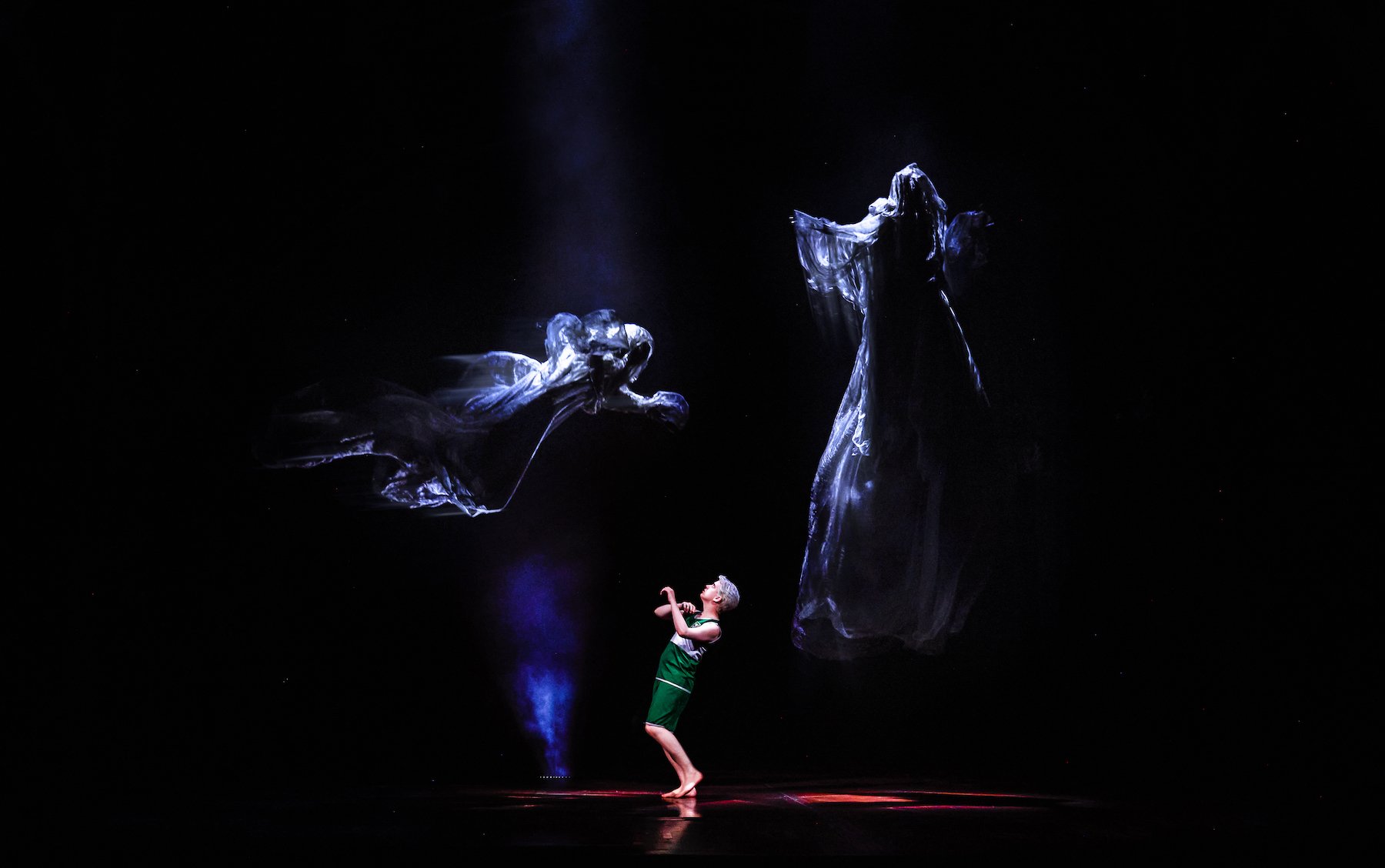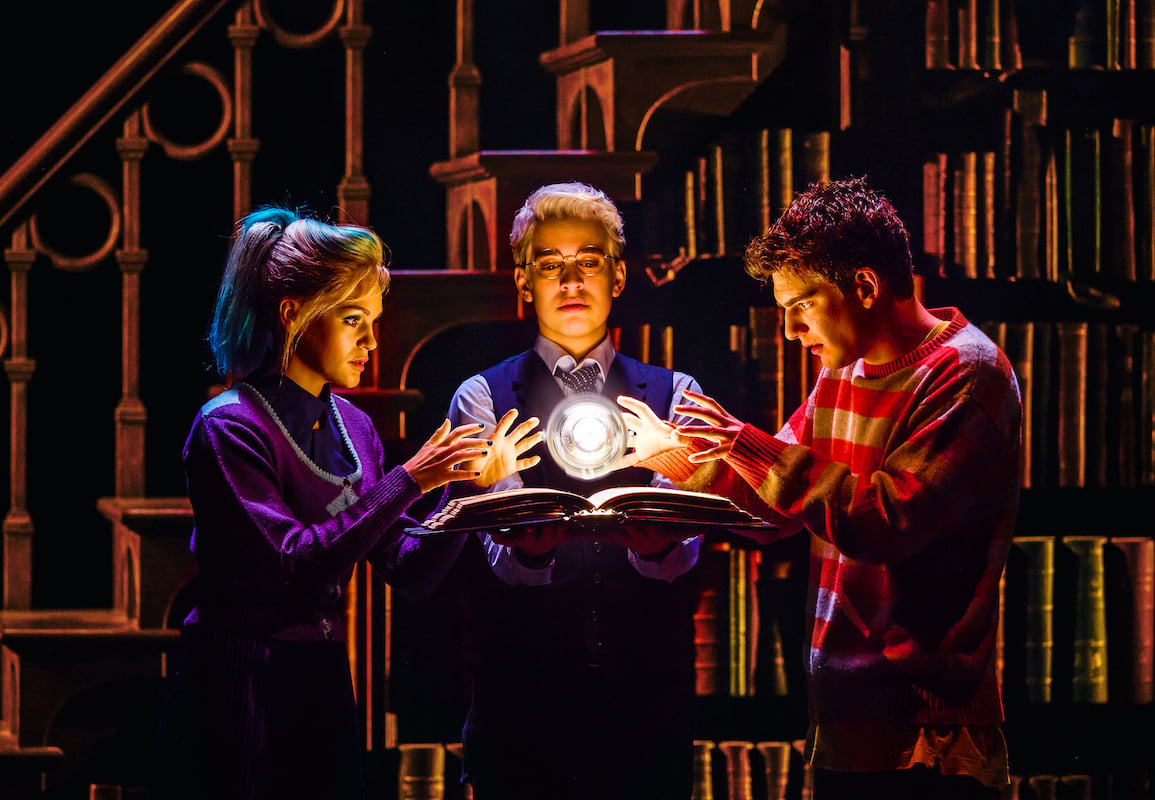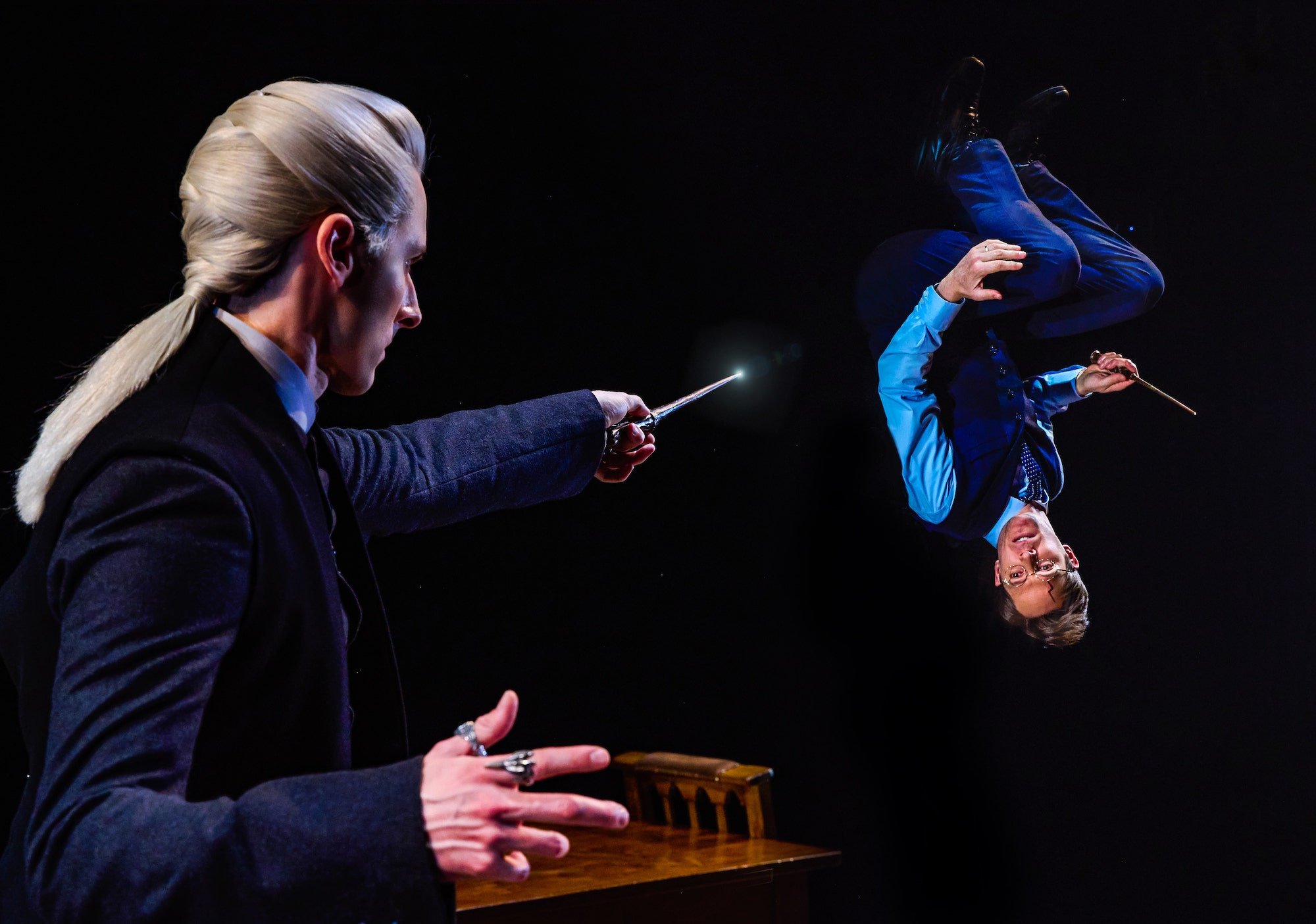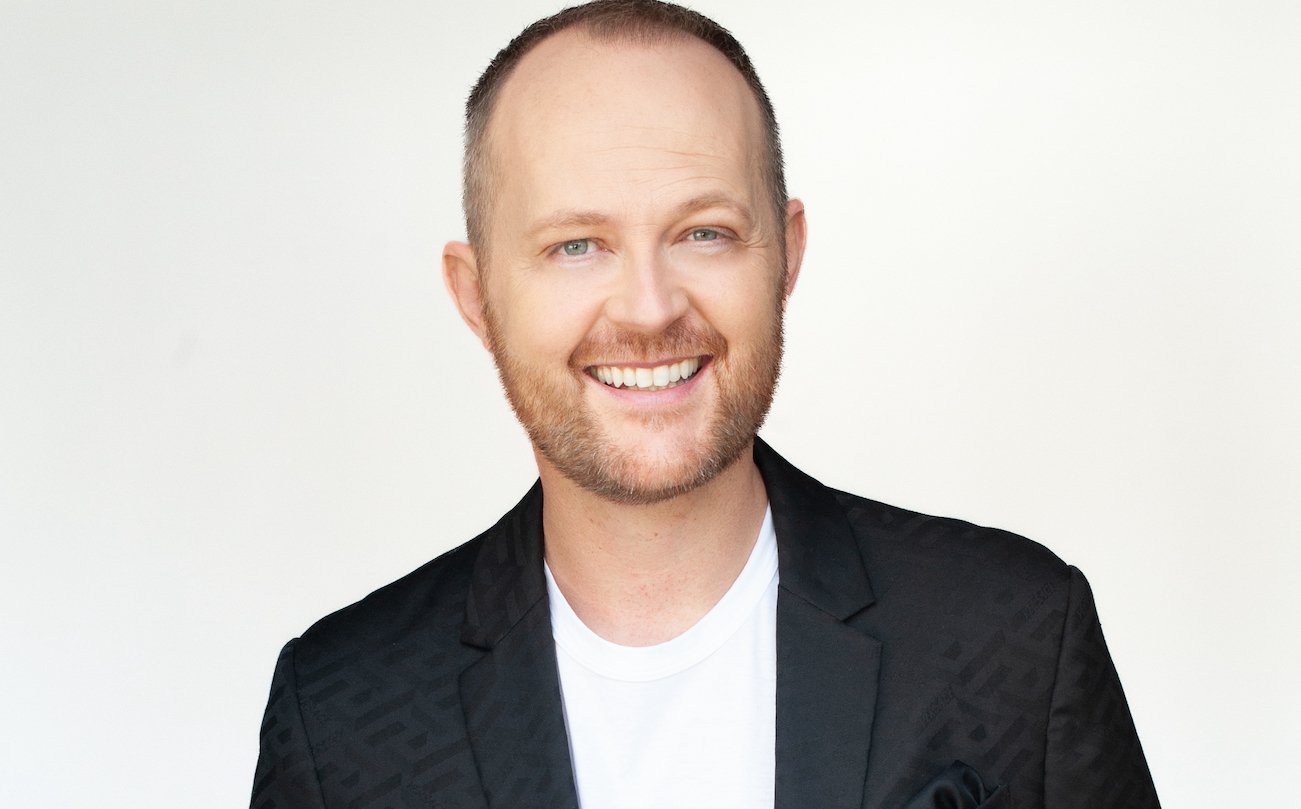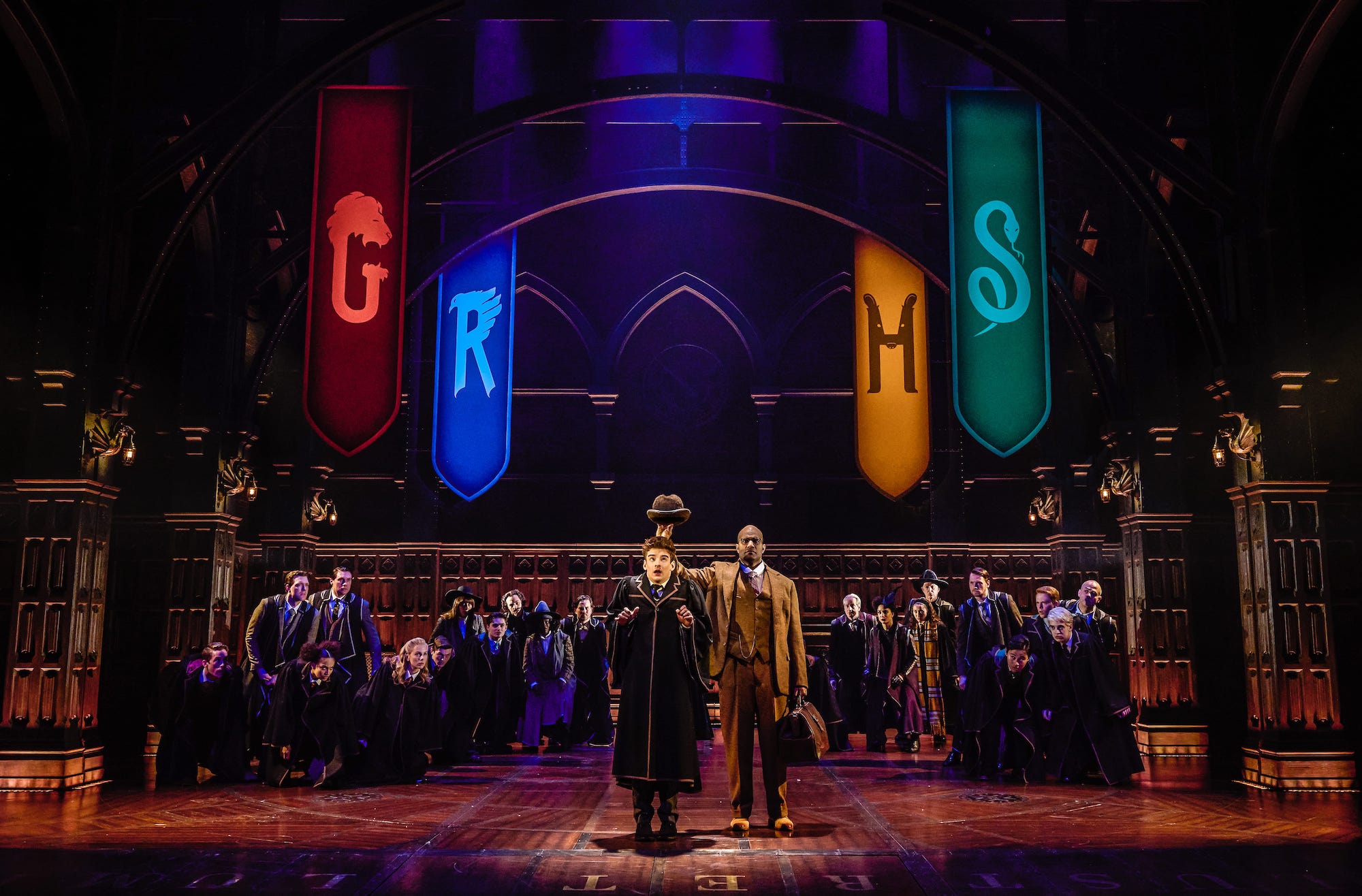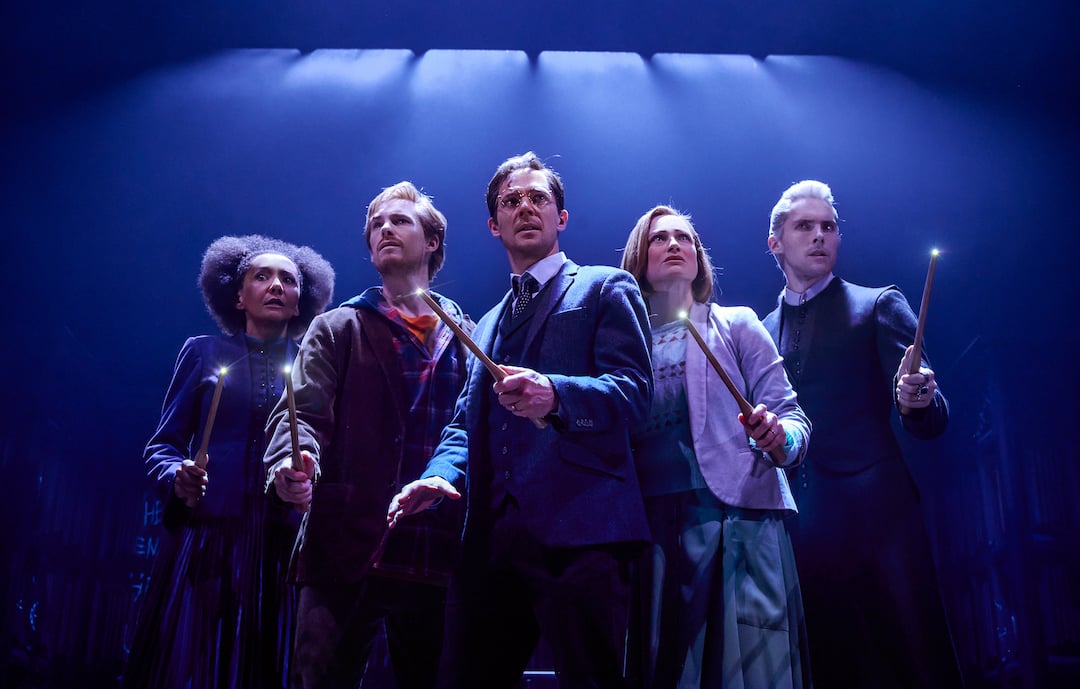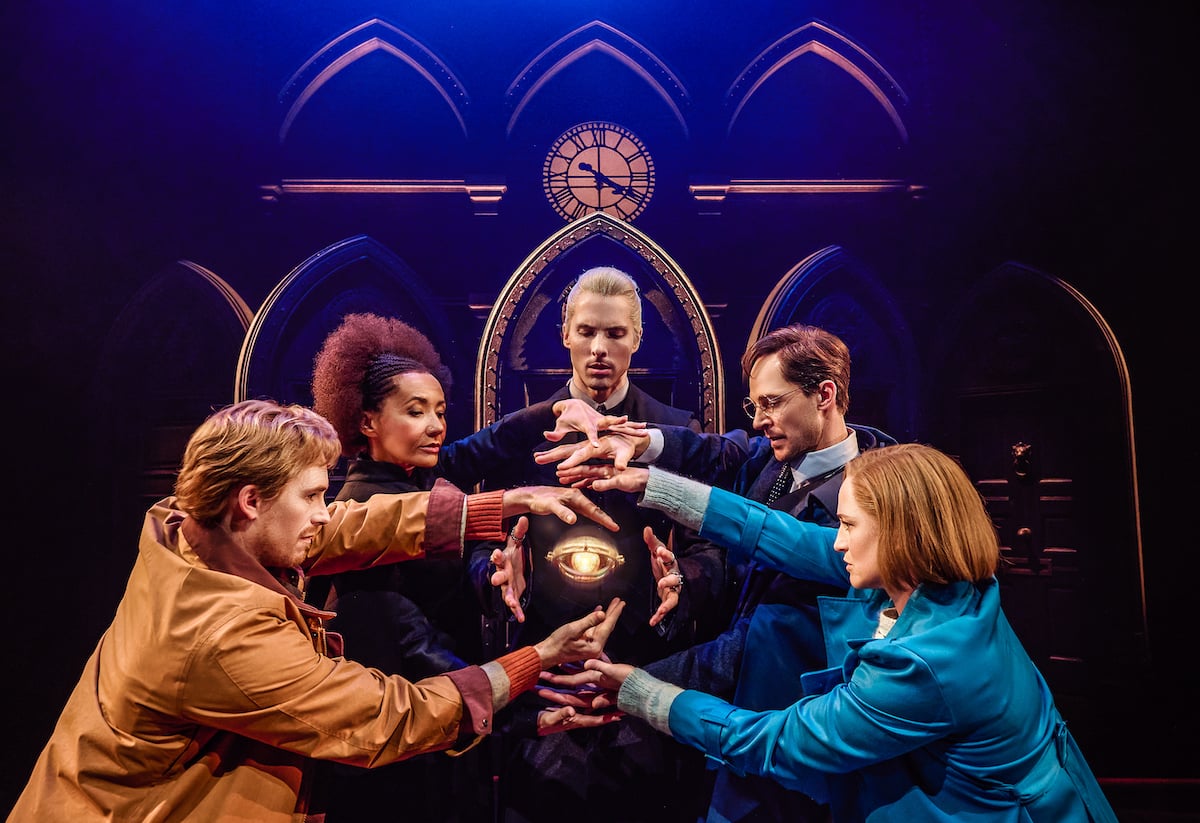There was an Australian bidding war for “Harry Potter & The Cursed Child”.
The theatre production continues the life of cross-generational hero Harry Potter thanks to an agreement between his creator J.K. Rowling and the play’s originators/producers Sonia Friedman and Sir Colin Callender.
Notably though, Harry Potter’s most recent adventure can only be experienced as a play (although film companies are now swirling to take it to the big screen), and the grand nature of its scale means it can only be hosted in theatres willing to spend millions on renovations and deny all other production opportunities for multiple years.
But following career-defining reviews on London’s West End calling it “spellbinding” (The Guardian), “truly epic” (Evening Standard), and a “must-see” (Independent) after its debut in 2016, interest was gathering pace with production companies on the other side of the world.
Seated in his plush Sydney office — which feels more playful-chic than corporate hub — the founder and namesake of Michael Cassel Group is nursing a coffee and reminiscing on the race to land what is now the longest-running and most successful theatre production in Australia.
“I did what I usually do,” Cassel recalls of his movements after seeing the production in November 2016, “which was to go back to the hotel room and not be able to sleep because I had to read about everybody who was involved in it.”
“My mind was blown,” he added. “I was like, ‘What the hell just happened, what have I seen?’ I could not believe just how epic the show was. I wasn’t ready for that.”
Love Film & TV?
Get your daily dose of everything happening in music, film and TV in Australia and abroad.
Cassel’s reaction has been mirrored by over 6.5 million ticket holders in London, New York, Hamburg, Australia and Tokyo. “Harry Potter & The Cursed Child” delivers magic before your eyes, illusion and distraction are only some of the tricks used to explore Harry’s experience of being a father. The technical yet intimate nature of the play meant that the winning bidder for the Australian run would need to make a financial investment that befit the epic nature of the play. But just weeks after its West End debut, producers Sonia Friedman and Sir Colin Callender were fielding calls from multiple parties wanting to bring the magic to Australia.
The winning bidders were proactive and aggressive.
Jason Marriner who runs Australia’s largest privately owned and operated theatre venue company Marriner Group put his hat in the ring and offered up the Princess Theatre for the show. The theatre would undergo an enormous renovation costing $6.5 million to prepare it for the production. Marriner knew the show couldn’t tour; the sheer scale of the production meant it needed to plant roots. But it also meant the show would be driving the biggest economic impact to Melbourne and the Marriner Group.
And so, the iconic Melbourne institution was closed for six months and revamped to bring Hogwarts School of Witchcraft and Wizardry to buzzing Spring Street. Almost every aspect of the theatre was re-envisioned to ensure that the experience begins as soon as you arrive; from the carpet, to the walls, the lighting… not to mention a multitude of accessibility, and acoustic changes.
Unbeknownst to Marriner at the time, his bid also meant the Princess Theatre would stage “Harry Potter & The Cursed Child” for four years from February 2019 to July 2023.
Visit Victoria was similarly chomping at the bit to be the exclusive Australian location. After an economic analysis for ticket sales, merch, and tourism dollars, it paid a confidential sum for the exclusive rights.
“You really have to pick people that you trust who think the same way you do,” says Sir Colin over video call from his home in New York. “[…] Visit Victoria were very aggressive in a very flattering way about bringing it to Melbourne, and the combination seemed irresistible.”
The Hon. Steve Dimopoulos, Victoria’s Minister for Creative Industries, said they knew the production was going to be huge.
“We decided to make an … offer to bring it exclusively to Victoria and Melbourne,” he says.
“I’m gonna disappoint you,” Dimopoulos says when I ask how much the offer was. “But I can’t tell you [what we paid] because if I tell you then New South Wales will just offer 5% more, or whatever, you know? I think it’s a bit of healthy competition.”
Whatever the investment was, it paid off. 42% of tickets sold were from outside of Victoria, which meant close to half-a-million theatre-goers were spending in restaurants, bars, retail shops and hotels across the four-year run, and contributing to the economy of the global city most hampered by pandemic lockdowns. The impact of this in the first year alone was over $250 million with the economy receiving between $40-$60 back for every dollar invested.
Michael Cassel’s expression of interest was similarly impassioned. Consisting of trips to London, a myriad of emails — and a video call powered by a steroid to allow a very ill Cassel to actually speak — Cassel won the bid. But it wasn’t cash that signed the dotted line, it was his production style.
“I’m very hands on,” Cassel says. “I think that was sort of what bonded us. Because that’s definitely Sonia [Friedman]’s style, she’s into everything in the best possible way and that’s exactly what we are.
“I feel like if you don’t want to be involved in the detail, then you may as well work in a bank or somewhere else. The joy of work in the theatre is to be at the theatre, supporting the creative team, supporting the cast. You know, to be engaged, to be present.”
Sir Callender is no stranger to international theatre collaborations. As a BAFTA, Emmy, Golden Globe, Olivier and Tony award winner, (and a Variety 500 honouree) his productions, like “Macbeth”, “Hedwig And The Angry Inch Winner” and “Dear Evan Hansen”, are among the highest-grossing in the world. So when it came to enlisting Cassel as his on-ground partner in Australia, it was 50% track-record and 50% gut instinct for Sir Callender.
“Michael [Cassel] had a very good team, has a very good track record, and we needed a grown-up in Australia. Some of our creative team would come out and work on the show, but at the end of the day, we weren’t going to be running it day-to-day — Michael was. We had to have somebody we trusted and had confidence in.”
“That’s what we do as producers,” says Callender. “We trust our gut and follow our instincts, and sometimes it works, sometimes it gets us into trouble. This time it worked.”
Callender’s co-producer on Harry Potter & The Cursed Child, Sonia Friedman, echoes his sentiments about working with Cassel, but she admits there were some external influences on the decision.
“I received calls from Cameron Mackintosh and Thomas Schumacer telling me I would be stupid if I didn’t work with Michael. I don’t think Michael even knows that,” she says.
It was that ringing endorsement from Mackintosh, the most successful theatre producer in the world, and Schumacer, the head of Disney Theatricals, that would give Friedman and Callender the assurances they needed, and it paid off.
In its first year, 51% of the audience for Melbourne’s run of “Harry Potter & The Cursed Child” travelled from intrastate, interstate or overseas to see the show. Of that number just over 10% were international visitors, with the highest-grossing market outside of Aotearoa being the United States. Moreover, Michael Cassel Group notes that of the more than one million tickets sold, half of those were for first-time theatre goers.
“They probably grew up with the books, and had seen the films,” says Cassel. “But they’ve never been to the theatre before. So to go and give them that experience with this show — and, hopefully if we’ve done our job right, encourage them to go and check something else out in the future — I think that’s great not just for Victoria, but for us as producers in the whole industry.”
Across interviews with the likes of Cassel, producers Friedman and Sir Callender, and Victoria’s Minister for Creative Industries, the undeniable theme was that of pure belief. Belief in a project which warranted so many firsts — from its creation as a play instead of the oft-tread path of a musical, to releasing it as a two-part, two-night affair until COVID forced the team to tighten it to one showing, to having a cast and crew of over 100 people (most plays have a cast of just 15) — there were no comparisons to draw on, just utter credence in the project.
“It’s really pushed us all to just unpick the whole business model,” says Cassel, “unpick the whole show, be creative. Take risks. That collaboration with the theatre and with government, it was amazing, in terms of how Jason [Marriner] supported us to get the show in and through that time of having a dark theatre [for the renovation].
“But everybody’s belief in the show, that it would work. That was pretty special.”
Cassel believes the Australian production of “Harry Potter & The Cursed Child” changed the rules of theatre in this country. While he’d been having internal conversations since 2017 around the paradigm of how shows are produced, having a monumentally successful play in one location puts theatre up there with tourism attractions like Movie World and Taronga Zoo.
“It’s proven that you don’t need to tour,” says Cassel. “It became an attraction, which was interesting for us from a marketing perspective […]. You’re not just selling a show, it’s an attraction. And that’s really had to change our mindset about how we go to market.”
The biggest show of resilience arrived just over 12 months in, when the world’s entertainment industry was brought to its knees. After selling every seat at the Princess Theatre for a year, the invisible enemy struck in March 2020 and placed the 100+ cast and crew members in a holding pattern.
“We told everybody to take their personal belongings home with them, but we’ll see you in a couple of weeks,” remembers Cassel.
‘A couple of weeks’ turned into eight months of virtual script reads, fireside chats, yoga sessions and gratitude for the Government’s Job Keeper program.
“Then it became what we called ‘the yoyo experience of Harry Potter’,” recalls Cassel. “Because one minute you’re open, the next minute you’re closed, then you’re open.”
Behind the scenes though, concerns were growing as to whether the production’s two-part format was the best option in the middle of a global pandemic. Discussions began in April 2020 to move it to one part, and while the Princess Theatre opened its doors once again that November with the two-parter, it re-launched in May, 2022 as a reimagined one-part production which has achieved the coveted ‘R word’: recouped. It’s no mean feat for a production Cassel dubbed “one of the most expensive shows I’ve ever produced” due to its epic staging, financial investment and lost income thanks to COVID-19.
“I think ultimately while we were really happy for it to be commercially successful, we were just happy to be able to keep the show running and make that return,” Cassel says.
“The city has been pumping post-COVID,” says Dimopoulos. “[…] The night-time economy, the weekend economy, the after-five economy is just above pre-pandemic levels. It’s been profoundly important to businesses in the CBD and to the health of the economy.”
The magic of Harry Potter was always meant to live on in generations of children who bonded over the books and films with their parents and grew to be baton-passing parents themselves. J.K. Rowling had always intended for the overarching messages of courage and integrity to live on through multiple generations of readers and viewers — but she never expected for it to revitalise theatre for young adults.
“We’ve had intergenerational Victorians proudly embracing the arts and in a way,” says Dimopoulos. “I think that’s sort of a quantum leap.”
As Potter crosses the finish line in Melbourne after a mammoth four-year run, Cassel isn’t only pleased with the fact it takes the record for the longest-running play in Australia, it’s the impact on the cast he’s most proud of.
Getting a job in theatre isn’t easy, and the accompanying lifestyle is even harder. “Harry Potter & The Cursed Child” offered the type of full-time employment which allowed some cast members to get a mortgage for example, or stay in one school catchment area for their children… and maintain employment throughout the uncertain global pandemic.
“It’s allowed them, despite the ups and downs, to have that consistent employment [and] all of the things you sort of take for granted,” says Cassel.
Cassel notes Melbourne’s proffering of “Harry Potter & The Cursed Child” could possibly have keep running long beyond four years; the final weeks of the season were completely sold out. But to have recouped the investment, to have rewritten the rules for local plays, and to have broken boundaries and records along the way, Cassel and co. have solidified a place in Australian theatre history.
“It was worth pushing for,” he says. “And then the result speaks for itself.
“The hardest thing for us was, there’s no science. You try and put as much data against it, but when do you close the show? We always felt the show had been on a great run; we want to leave on a high.
“The million-dollar question will always be, ‘Could we run another six months or a year?’ But it felt like now is the right time. We’re in a good place; let’s not be too greedy or too ambitious. End as we began, which is in a really great, celebratory way.”
































